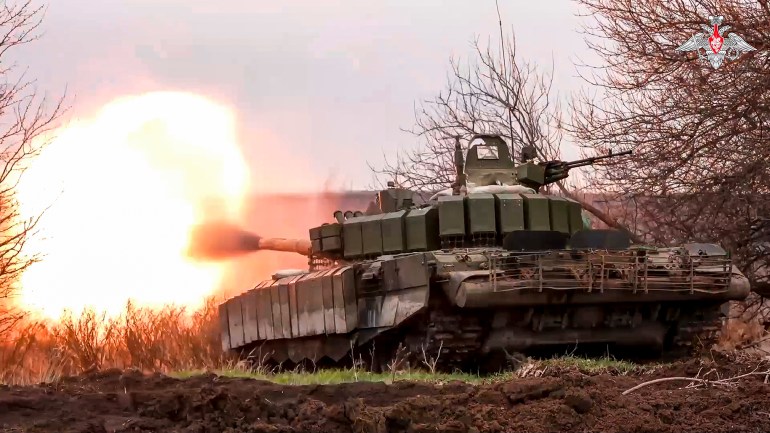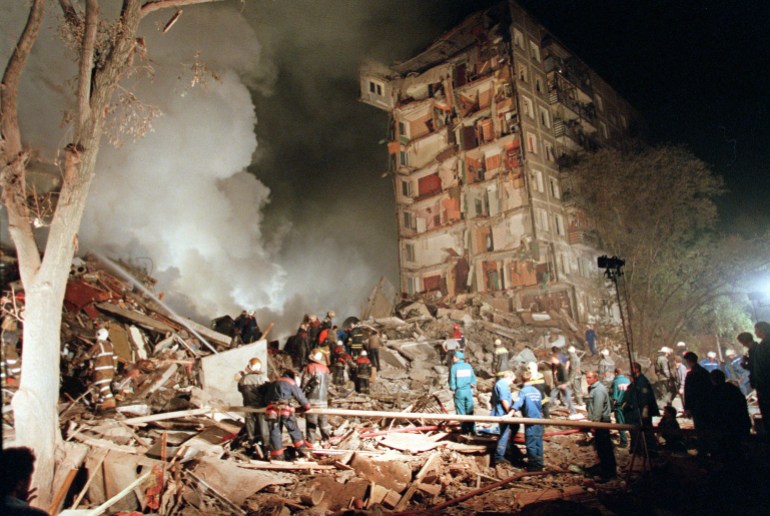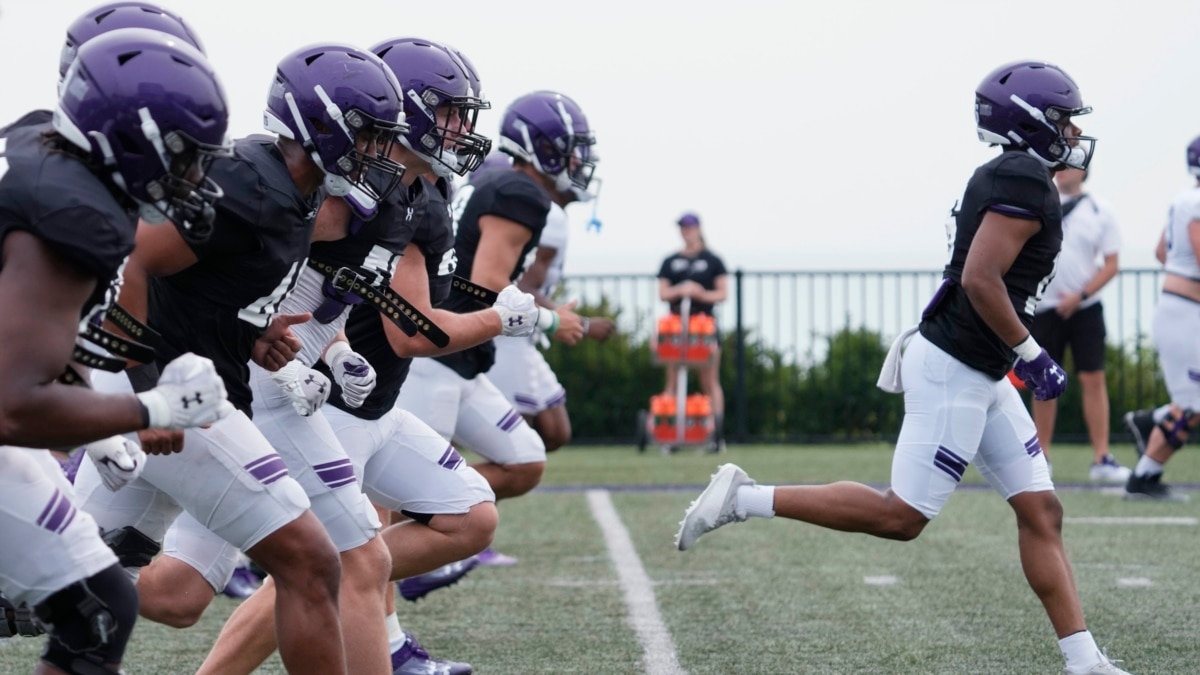
Aleksandra Chanysheva is convinced that lax security precautions made the attack on a concert hall northwest of Moscow possible on Friday evening.
“Guards are the most ridiculed and underpaid people in Russia,” the 51-year-old Russian language and literature teacher at a public school told Al Jazeera. “And they do their jobs in the worst way possible.”
The attack on Crocus City Hall killed at least 133 peopleincluding three children, and more than 100 others injured, Russian investigators said Saturday.
Several heavily armed men wearing camouflage uniforms sprayed bullets into a crowd that had gathered to hear the Soviet-era rock band Picnic, set fire to the building and fled in a “white Renault,” officials said.
Some experts agree with Chanysheva, given a history of deadly attacks on crowded public spaces in post-Soviet Russia dating back to when Moscow launched the second Chechen war a quarter century ago. But other analysts and Russian opposition groups argue that an even darker possibility cannot be ruled out: pointing to potential political benefits for President Vladimir Putin from Friday’s massacre.
Back in the late 1990s, Chechen separatists and fighters from the predominantly Muslim North Caucasus region launched a wave of attacks and seized concert halls, hospitals and public schools. the deployment of suicide bombers into Moscow’s sprawling subway system; and explosive explosions on buses and planes.
Friday’s attack showed “the complete impotence” of the Russian intelligence services, the National Guard and the entire law enforcement system, Nikolay Mitrokhin, a research fellow at Germany’s University of Bremen, told Al Jazeera.
The secret services received repeated warnings from the West – including a public warning from the USA on March 8th.
Moscow, Russia: The Embassy is monitoring reports that extremists are immediately planning to target large gatherings in Moscow, including concerts, and U.S. citizens should be advised to avoid large gatherings in the next 48 hours. As a reminder: Our travel advice for Russia is… pic.twitter.com/J5oLgOvFY4
— Travel – Department of Foreign Affairs (@TravelGov) March 7, 2024
“The embassy is monitoring reports that extremists have immediate plans to target large gatherings in Moscow, including concerts, and U.S. citizens should be advised to avoid large gatherings in the next 48 hours,” the country’s mission wrote in Moscow on X
But days later, on March 19, Russian President Vladimir Putin arrived I rejected this warning about possible attacks in Moscow and described it as “blackmail.”
Even a brand new, comprehensive facial recognition system across Moscow, widely used to identify opposition protesters, failed to stop Friday’s attack.
Due to heavy traffic congestion, it took an hour and a half for authorities to send special forces to the scene in the Moscow suburb of Krasnogorsk.
“Where are the helicopters for rapid deployment to critical locations in the greater Moscow area? Where are the armed vehicles? Where do these pumped up, strict guys come from? [promotional] Videos?” asked Mitrokhin.
“We know where they are – burned down with their vehicles on the streets of the Kiev region, sitting in underground holes near Donetsk or patrolling in the Luhansk region… not where the real danger is, but that’s where the crazy president has decided to wage a war,” he said.
ISIL claims responsibility
The Afghan arm of ISIL/ISIS – known as the Islamic State in Khorasan Province, or ISIS-K – claimed responsibility for the attack via the Telegram channel of Amaq, a media outlet affiliated with the group.
It said its fighters attacked “a large gathering of Christians,” killing and wounding hundreds and causing “great destruction” before retreating “safely.” ISIS-K is waging a war against the Taliban movement, which seized power in Afghanistan after the withdrawal of US forces in 2021.
Although Moscow still classifies the Taliban as a “terror group,” it has increased contact with them and welcomed their envoys to Moscow and to regional security conferences.
The United States has said its intelligence supports ISIS’s claim of responsibility for the attack.
But neither the Kremlin-controlled media nor Putin’s opponents are so convinced.

Russia points the finger at Ukraine
“These claims may be a sham and must be thoroughly verified,” said an editorial published Saturday by the pro-Kremlin tabloid Moskovskiy Komsomolets.
Politician Alexander Khinstein claimed Russian police stopped a car carrying suspected attackers early Saturday in the western Bryansk region, which borders Ukraine and Belarus.
Two suspects were arrested after a shootout and the remaining passengers fled into the forest, he further claimed telegram.
Tajik passports as well as a pistol and ammunition were found in the car, he claimed, citing police sources. Tajikistan borders Afghanistan and its residents speak a language related to Farsi.
On Saturday afternoon in Moscow, Russia’s Federal Security Service, better known as the FSB, claimed to have done so eleven men were arrested, including four suspected attackers. It was said that they would enter Ukraine where they had “contacts”.
In response, a Ukrainian think tank blamed Russian intelligence services. They organized the attack “to blame Ukraine and find a pretext for a new mobilization in Russia,” the Ukrainian Center for Combating Disinformation said in a statement quoted by the Kiev-based news agency UNIAN on Saturday .

Memories of the dark 1990s in Russia come back
Other independent experts also questioned the assumption that ISIL was responsible for the attacks.
“It is very likely that the Russian secret services knew about it [the attack] in advance, and perhaps they set it up to pursue political goals possibly discredit Ukrainejustify a new wave of mobilization and generally tighten the screws,” Alisher Ilkhamov, head of Central Asia Due Diligence, a think tank in London, told Al Jazeera.
“You just have to ask one question: who will benefit from this? I somewhat doubt that ISIL has serious interests in Russia,” he said.
Putin, on the other hand, benefited from the attack, said Ilchamov. “Becoming a victim of IS triggers sympathy around the world. This is a type of public relations work [trick] improve [Russia’s] international reputation. So there are a whole range of benefits for Putin’s regime,” he said.
“Of course that cost the lives of his citizens – the thing he spits on.”
As conspiratorial as these proposals may seem, they are based on a history of potential false flag operations that the Russian president has used to boost his political standing, as many Putin critics claim.
Putin, a former spy in Germany who briefly headed the FSB, was appointed prime minister in 1999. Months later, explosions in residential buildings killed dozens of people. The Kremlin blamed Chechen separatists and used the attacks as a pretext to trigger the Second Chechen War: Putin’s approval ratings skyrocketed, paving the way for his first election as president in 2000.
Fugitive former FSB officer Alexander Litvinenko claimed Putin ordered the attacks. Putin repeatedly called him a “traitor,” and in 2003 Litvinenko died a painful death in the United Kingdom after being poisoned with radioactive polonium. The UK said Putin “may have been” behind the killing.
A Russian opposition group also pointed to the late 1990s and suggested that Putin’s own involvement in the Moscow killings could not be ruled out.
“We remember how Putin’s regime and his intelligence services paved the way to the Second Chechen War,” the Forum for Free Russia, an alliance of exiled opposition activists, said in a statement.
“It is very likely that this terrorist attack was organized by Russian intelligence services. If so, we can certainly expect responsibility for this attack to be blamed on the Ukrainians or the Russian armed opposition,” it said.






Recent Comments